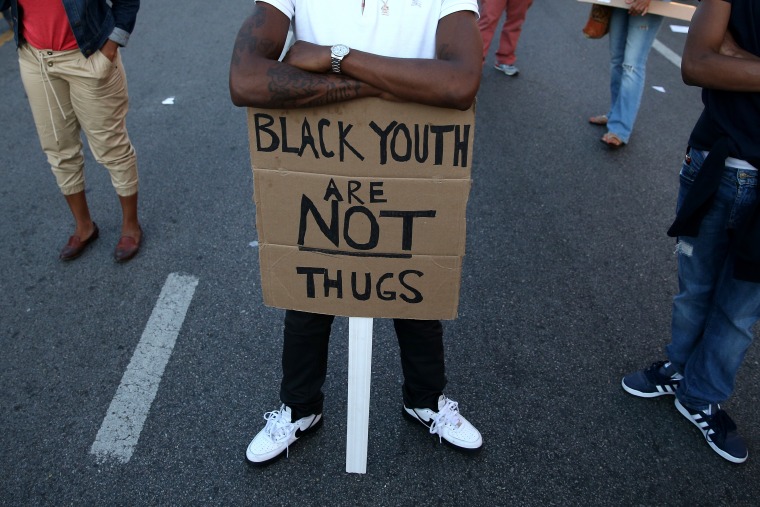A new report reveals that Black millennials face unique challenges in a range of areas, including employment, education, gun violence, health and criminal justice.
The Black Millennials in America report was released on Tuesday by the Black Youth Project, an organization created to document the experiences, voices, and political future of young Black Americans.
One of the more striking findings; more than half of African-American millennials indicated they, or someone they knew, had been victimized by violence or harassment from law enforcement.
The report used survey data from the past ten years, beginning with the 2005 Youth Culture Survey conducted by the National Opinion Research Center at the University of Chicago and ending with the Black Youth Project Surveys that took place in between 2012 and 2014.
Other key findings from the report include:
- In 2013, 71.4% of young Black adults were covered by health insurance, compared with 59.5% of young Latino adults and 79.1% of young white adults.
- Incarceration rates in 2013 among young Black men 18 and 19 years of age were seven times higher than they were for young white men and more than twice as high as for Latino men in the same age group.
- In the second quarter of 2015, unemployment rates were substantially higher for Black youth than for white and Latino youth. For instance, 16.6% of Black youth between the ages of 20 and 24 were unemployed, compared with 10.3% of Latino youth and 8.5% of white youth in the same age group.
- President Obama’s success in winning the youth vote in 2012 was due largely to his extremely high levels of support from young people of color, including support from 95.8% of young Black voters and 76.3% of young Latino voters. 44.7% of young white voters supported Obama.
- Overwhelming majorities of Black (80.5%) and Latino (75.9%) youth support increasing the federal minimum wage from $7.25 to $10.10 per hour, compared with 61.2% of white youth.
- The leading causes of death in 2007 for African Americans between the ages of 18 and 29 was homicide (43.7%) followed by unintentional injury (23.5%). Homicide was also responsible for almost a quarter of deaths among Latino youth, but less than 5 percent of deaths among white youth.
The report borrows from the Pew Research Center’s definition of the millennial generation, which includes people between the ages of 18 and 34.
About 40 percent of millennials are non-white, including about 19 percent who identify as Latino or Hispanic, about 13 percent who identify as Black or African American and about 6 percent identifying as Asian American. Based on immigration and birth rates, people of color are projected to comprise a majority of the millennial generation within several decades.
The Black Youth Project is an organization of Black 18-35 year olds who want to create and inspire change through leadership, organization, advocacy, and education. This includes training black activists in grassroots organizing, running campaigns against the criminalization of Black youth, racial profiling and police brutality, and raising a group of Black leaders to take on issues in the LGBT women’s rights space.
To see the “Black Millennials in America” report, click here.
